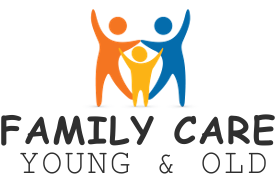Typically, we are concerned that our children safe will only be exposed to accidents, bruising, and other dangers in the streets and playgrounds. However, your immediate surroundings, your own home – kitchen appliances, a bathroom with chemicals stored in it, first-floor stairs, and even your own cot – may not be adapted to the needs of a toddler’s busy and curious world. How can this space be organized to limit the danger of accidents?
The Safety Of The Baby When He Or She Is Asleep
It’s important to remember that healthy youngsters should sleep on their backs. It is the most comfortable and secure posture for a child. It is critical not to place soft cushions in the baby’s bed or fluffy blankets over its mouth, as these pose a health danger, such as increasing the risk of cot death. It is ideal to place your infant on a firm, flat mattress so that it does not “collapse” into it. A sleeping bag, which is beneficial regardless of the season, is the greatest way to keep warm at night. It provides mom peace of mind that the baby will not be discovered in the middle of the night. The sleeping sack should be large enough for the baby’s legs and hands to move freely.
The Safety Of The Baby When He Or She Is Being Fed
When feeding a baby, it’s crucial to consider not just the food’s quality, type, and freshness, but also the conditions and manner in which it’s presented. Incorrect food preparation can cause a variety of problems, including indigestion and, in the worst-case scenario, choking. Keep a few fundamental guidelines in mind when feeding your infant.
New Items Should Be Introduced With Prudence.
Introduce new goods one at a time, in modest amounts, and carefully examine the child’s response after a meal if your kid is prone to allergies or someone in his immediate family is allergic.
Do Not Feed Ungrated Soups To Babies Under The Age Of Seven Months.
Soups with visible chunks of vegetables or meat should be avoided until the kid is 7 months old. When a child safe gullet isn’t habituated to solid foods, it can irritate it and cause a gag reaction.
When your child is trying to eat on their own, keep a watch on them. Keep a watch on your child even if he or she knows how to use a spoon. When young children put too much food in their mouths, they frequently choke when trying to swallow it.
Keeping Your Kids Safe At Home While They Play
The activities encourage a child’s development as he learns about objects using all of his senses.
Climbing on furniture, climbing stairs, overcoming various hurdles in the house, or putting everything they find on the floor in their mouths are all fun ways for kids to play. As a result, it’s important to consider what can get in their way and how they might safely investigate the area.
Toys in the hands of small children frequently strike the face, mouth, and eyes. They should be completely age-appropriate, with no improper aspects. Small portions can be swallowed or inserted into the ear or nose by children.
At home, children’s care should be provided in the living room, kitchen, and bathroom.
Remember to adequately guard the corners of the furniture to make the enjoyment at home safe. It’s also worth noting that specific coverings should be used to secure the contacts. Typically, youngsters fill them with a variety of stuff. Remove any vegetation that could be harmful to your baby’s health. Install a protective screen over your fireplace if you have one.
Even if they don’t know how to walk, children enjoy climbing stairs. Railings should be installed on both the ground floor and the first floor to provide further protection from falling. Your infant will not be able to climb the stairs at all.



Leave a Reply